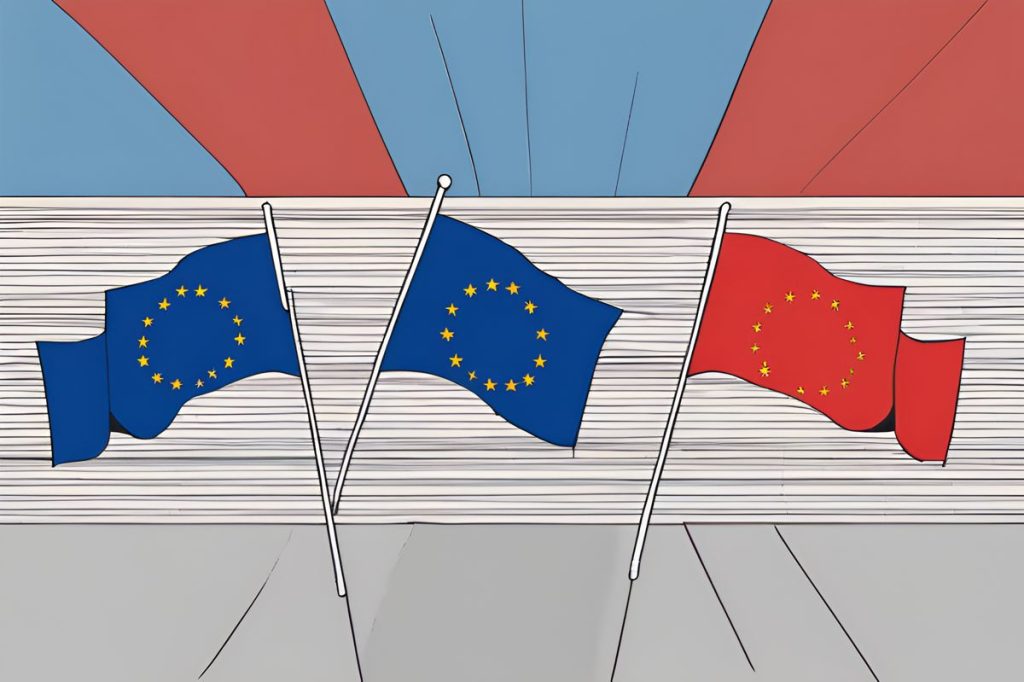Kosovo’s bid for Council of Europe membership has stirred international tensions, with Cyprus, Hungary, and Serbia voting against it citing concerns about separatist movements and regional stability. The resolution’s passage signifies a diplomatic challenge and opportunity for Kosovo’s integration into European institutions, sparking debates on state sovereignty and territorial integrity within the Council of Europe.
What are the implications of Kosovo’s bid for Council of Europe membership?
Kosovo’s bid to join the Council of Europe has sparked international debate due to differing views on sovereignty and territorial integrity. While many MPs supported the move, Cyprus, Hungary, and Serbia voted against it, fearing it may set a precedent for separatist movements and disrupt regional stability. The bid represents both a diplomatic challenge and an opportunity for Kosovo’s integration into European institutions.
The Controversial Vote
In a recent move that has stirred international debate, the Parliamentary Assembly of the Council of Europe (PACE) has offered a recommendation in favor of Kosovo’s bid to join the Council of Europe. The resolution was put to a vote on Tuesday evening, where it received an overwhelming majority of support, with 131 MPs from 39 countries voting in favor. However, notably dissenting from this consensus, Cypriot MPs cast their votes in opposition to the motion.
Cyprus’ two representatives at PACE, George Loucaides of Akel and Christiana Erotokritou of Diko, were among the 29 who voted against Kosovo’s application. Notably, Cyprus’ third representative, Disy’s Nikos Tornaritis, was not present for the vote. Cyprus was joined by Hungary and Serbia in having all present representatives vote against the accession. The implication of this vote is significant, as it suggests differing views on state sovereignty and the recognition of national borders within Europe.
Diplomatic Responses and Implications
The resolution’s passage highlights the complexities of international diplomacy, acknowledging that the application comes under “unprecedented circumstances” since not all member states recognize Kosovo as a sovereign state. This calls for diplomacy, dialogue, and compromise to avoid creating a rift within the Council of Europe members.
George Loucaides spoke out against Kosovo’s potential accession, arguing that this move could exacerbate tensions and nationalism in the already volatile Western Balkans. He expressed concerns about setting a negative precedent for other separatist entities seeking international recognition, emphasizing the importance of upholding international legitimacy and the territorial integrity of member states.
Christiana Erotokritou stood by her vote as a matter of principle, stressing that sovereignty and territorial integrity of recognized states should remain inviolable. She highlighted the dangers of setting a precedent by accepting non-United Nations member states into the Council of Europe, particularly in the current unstable international climate.
Regional and International Reactions
The debate around the resolution was intense, with representatives from different countries voicing their support or discontent. Serbian representative Biljana Pantic Pilja lashed out at the Greek representative Dora Bakoyannis, who facilitated the vote by filing the statutory report. Pilja’s strong words echoed Serbia’s stance against Kosovo’s independence, proclaiming that despite being a small nation, Serbia would not yield.
In contrast, Ukrainian representative Oleksii Goncharenko urged Serbia to cooperate with the European Union and its neighbors, to let go of past ambitions, and to move forward together. His message was clear: old imperial aspirations, such as those of a Serbian empire, would not be conducive to progress in the region.
The Path Forward
Despite the controversies, the resolution to invite Kosovo to join the Council of Europe stands, potentially granting the country three seats, equal to Cyprus’ representation. The move is seen as an opportunity for Kosovo to integrate further into European institutions, although it continues to face resistance from certain member states. This decision underscores the ongoing challenges in the region and the delicate balance between the pursuit of national interests and the principles of international diplomacy.
What are the implications of Kosovo’s bid for Council of Europe membership?
Kosovo’s bid to join the Council of Europe has sparked international debate due to differing views on sovereignty and territorial integrity. While many MPs supported the move, Cyprus, Hungary, and Serbia voted against it, fearing it may set a precedent for separatist movements and disrupt regional stability. The bid represents both a diplomatic challenge and an opportunity for Kosovo’s integration into European institutions.
What was the controversial vote regarding Kosovo’s bid for Council of Europe membership?
In a recent move that has stirred international debate, the Parliamentary Assembly of the Council of Europe (PACE) recommended Kosovo’s accession. The vote received support from 131 MPs from 39 countries, but Cyprus, Hungary, and Serbia voted against the motion, citing concerns over state sovereignty and territorial integrity. The vote highlighted differing views within Europe on recognizing Kosovo’s independence.
How have diplomatic responses and implications played out following Kosovo’s bid for Council of Europe membership?
The resolution’s passage has highlighted the complexities of international diplomacy, with not all member states recognizing Kosovo as a sovereign state. Representatives from different countries expressed varying opinions on the matter, with some emphasizing the importance of upholding state sovereignty and territorial integrity. The situation calls for diplomatic dialogue and compromise to prevent rifts among Council of Europe members.
What have been the regional and international reactions to the debate surrounding Kosovo’s bid for Council of Europe membership?
The debate surrounding Kosovo’s bid has sparked intense reactions from representatives of different countries. Some, like Serbian representative Biljana Pantic Pilja, have strongly opposed Kosovo’s accession, while others, like Ukrainian representative Oleksii Goncharenko, have urged cooperation and progress in the region. The diversity of reactions reflects the complexities of the situation and the varying perspectives on state sovereignty and international recognition.

